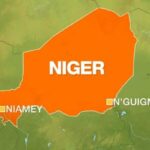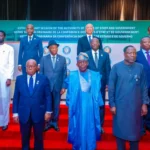While preparing for the 2006 population census, the former Chairman of the National Population Commission, Chief Samuila Danko Makama, undertook a sensitisation visit to Suleja. In his address, he mentioned the unique population terrain of the town as a result of its proximity with the Federal Capital city. While responding to Makama’s address, the Emir of Suleja, Malam Muhammadu Awwal Ibrahim, said, “Whenever Abuja sneezes, Suleja catches cold.”
His Royal Highness could not have put it better, because at the same period, demolition of illegal structures at Gwagwa, Karmo, Jiwa and surroundings was ongoing, and almost all the victims were trooping to Suleja. Yet no special assistance was given for the town to shoulder such a burden. It culminated in a centre spread report in the Daily Trust of October 31, 2006, written by Malam Nasiru Imam, titled ‘Abuja Grows Suleja Groans’.
The title of my M.Sc. URP Thesis in ABU was ‘The Impact of Abuja on the Physical Development of Suleja’. My findings from the Niger State Ministry of Finance were that in 1994, more than 30 years ago, the total internally generated revenue for Niger State was N64 million.
Suleja alone accounted for N24 million representing 37.8 per cent.
That time, my monthly Salary as a Grade Level 9 officer in FCDA was less than N1,000.
The principle behind taxation is for the purpose of provision of infrastructure and services to the taxed citizens. All the Abuja workers and their families residing in Suleja patronise hospitals, schools and other services provided in Suleja. But their taxes, deducted by their employers, were not remitted to the government providing the services in Suleja.
Suleja people have been at the forefront of advocating for repatriation of PAYE taxes of Abuja-based workers living in Suleja.
Because it was believed that Niger State would provide more services to Suleja, the approval was granted, and now being silently collected by Niger State, but nothing changed.
Presently, at least N100 million is collectable on that PAYE alone on a monthly basis. Other sources of revenue are ground rents, tenement rate and business premises taxes, among others. Even agricultural activities are taxed in Suleja, despite having a Farmer Governor. It is expected that the state ensures more, and very quality infrastructures are provided in Suleja, even if for the benefit of raking in more revenue.
If the federal government doesn’t appreciate Suleja’s sacrifice for the nation, at least Niger State should pay more attention, and enhance the provision of infrastructure to Suleja, in recognition of its mega contribution to its huge revenue generation for the state. It is only fair when what was received is given out to the community in the form of services.
The former governor, Babangida Aliyu’s administration claimed to have provided 10km township road in each local government. Not even three kilometres is provided for Suleja. The Gwazunu Road purportedly rehabilitated couldn’t last two years after. Aliyu further conceived a fantasy Twin City project, including the dual carriageway of the same Madallah Road in a floated bond. But both project and bond disappeared into thin air.
The present administration mentioned an agenda of provision of a 50km township road in each of the 3 urban areas of Bida, Kontagora and Suleja. Flag-off was done in the others, minus Suleja. Perhaps, that was the road project, which commenced with the construction of substandard drainage ditches, along Maje-Madalla Road and the one going to Kaduna Road. It can never be acceptable. It is more inexcusable that the old drainage ditches constructed by late Governor Kure, more than 20 years ago that are being replaced, are of superior quality.
Maje-Madalla Road is part of Trunk A-124 federal road, meaning the state government is expecting to be reimbursed by the federal government after 10 years. But how would such substandard work merit reimbursement? If the present government refuses to make amends, continues to pay the contractor, who even doesn’t want to be known, despite the very poor work and much outcries, it is proving that its interest is only the money; not the work and the people’s well-being.
And the present government is not concerned with the challenges to be encountered by any succeeding regime.
House owners, mostly local indigenes that would be affected by the ongoing project, would certainly have to be compensated and resettled.
Till date, the programme for resettlement and compensation rate in Suleja is still unknown. But the government had facilitated for other communities in the state.
There is no denying the fact that the jurisdiction of the government is the entire Niger State; not only Suleja. But Peter and Paul must be given what they both deserve. And Peter’s benefit must not be shortchanged to favour Paul. It is very glaring that where the resources are generated in Niger State is not where the work is done. A stitch in time saves nine!
Concluded.
 Join Daily Trust WhatsApp Community For Quick Access To News and Happenings Around You.
Join Daily Trust WhatsApp Community For Quick Access To News and Happenings Around You.


